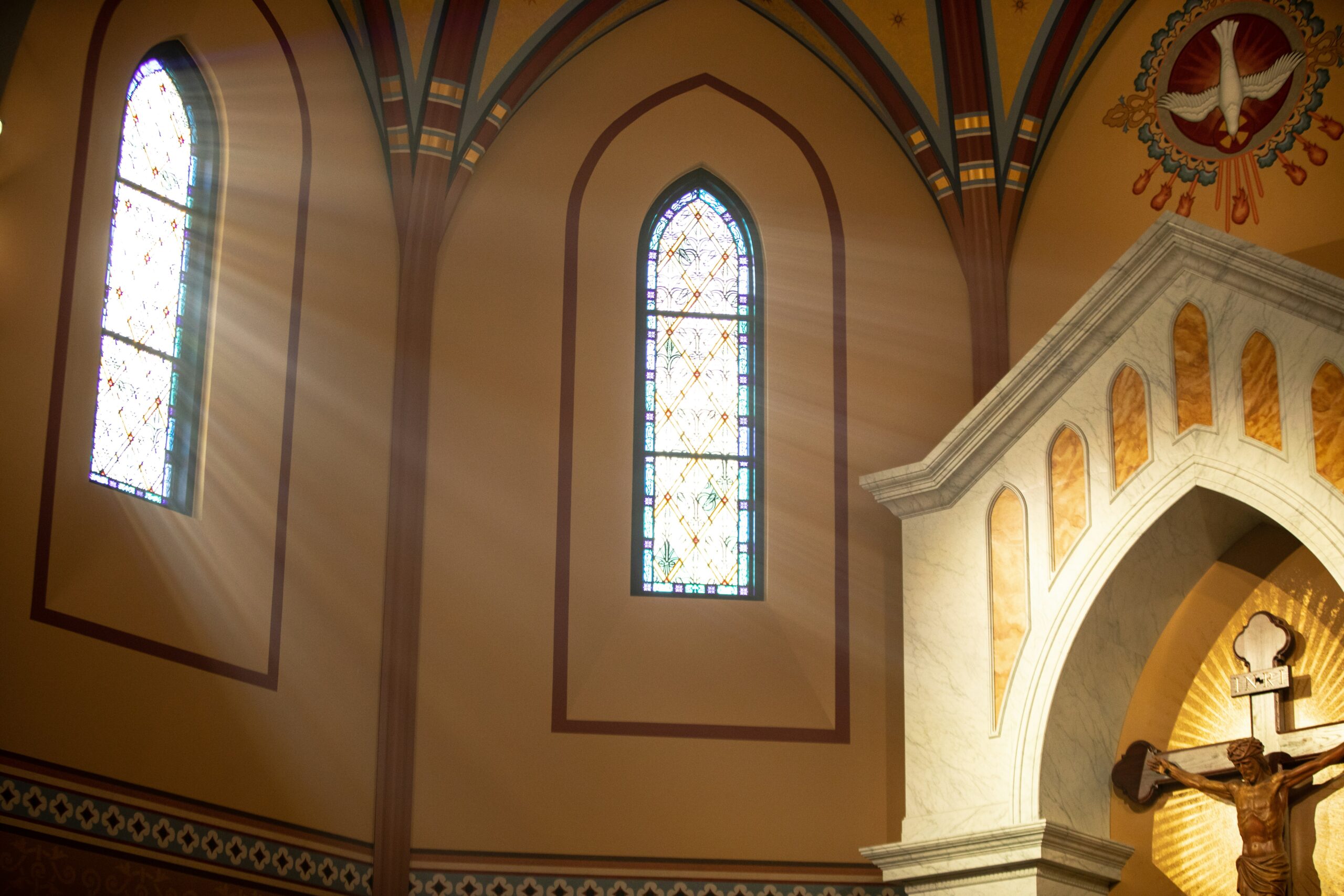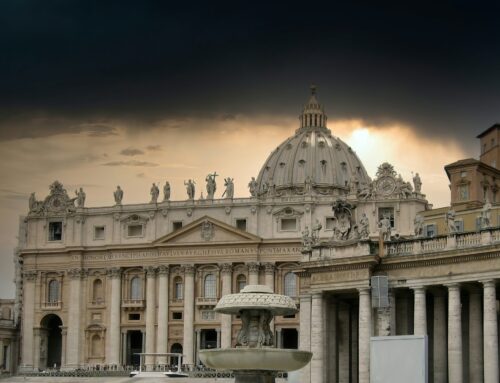The Catechism of the Catholic Church serves as a fundamental guide for understanding the doctrines, beliefs, and practices of the Catholic faith. It offers a systematic presentation of what Catholics believe and how they live out their faith, making it a valuable resource for both the faithful and those seeking to learn more about Catholicism. The Catechism touches on every aspect of Catholic life—from the sacraments and moral teachings to the importance of prayer and the Church’s role in society. This blog explores the essential role the Catechism plays in the Catholic faith and how it can deepen one’s understanding of what it means to be Catholic.
What is the Catechism of the Catholic Church?
The Catechism of the Catholic Church is a comprehensive text that offers a clear and thorough presentation of Catholic teachings. Published in 1992 under the direction of Pope St. John Paul II, the Catechism is intended to be an official reference for understanding the faith, morality, and sacraments of the Church.
The Catechism is structured around four pillars:
- The Profession of Faith (The Creed): This section outlines the essential truths of Catholic belief, starting with the profession of the Nicene Creed. It explains who God is, the role of Jesus Christ, the work of the Holy Spirit, and the nature of the Church. It establishes the theological foundation that all Catholics share and provides a deeper understanding of salvation history.
- The Celebration of the Christian Mystery (Sacraments): This pillar is devoted to the sacraments, focusing on their role as means of grace. The sacraments, especially the Eucharist, form the core of Catholic worship and spiritual life. This section explains the importance of each sacrament and its significance in the believer’s journey toward salvation.
- Life in Christ (Moral Teachings): The third section offers guidance on how Catholics are called to live according to God’s commandments and Jesus’ teachings. It explains the virtues, the importance of conscience, and the Church’s teachings on issues like social justice, human dignity, and the moral implications of decisions Catholics face in their daily lives.
- Christian Prayer: The final section emphasizes the importance of prayer, particularly focusing on the Our Father as the model prayer. It guides Catholics in developing a deeper relationship with God through prayer and highlights the significance of the sacraments in personal devotion.
These four pillars provide a holistic framework for understanding Catholic teachings, helping Catholics deepen their faith while giving non-Catholics a clearer picture of what the Church believes and teaches.
The Role of the Catechism in Catholic Education
The Catechism is a crucial tool in Catholic education and plays a significant role in religious instruction. It serves as the backbone for teaching the faith in parishes, schools, and seminaries, and is used in everything from catechism classes for young children to adult education programs.
For children preparing for First Communion or Confirmation, the Catechism provides a structured way to understand the basics of the faith. As young adults enter RCIA (Rite of Christian Initiation for Adults), the Catechism becomes a resource for exploring the deeper aspects of Catholic doctrine and the responsibilities of living as a Catholic.
Beyond formal education, many lay Catholics turn to the Catechism for personal study. Whether through self-guided learning or group study, the Catechism offers clarity and consistency, ensuring that the faithful receive accurate teaching. By providing a complete and unified explanation of the faith, the Catechism ensures that Catholics worldwide have access to the same foundation of knowledge, no matter where or how they learn it.
Guiding Moral Decision-Making
In addition to being a resource for theological instruction, the Catechism serves as a moral compass for Catholics. Life often presents complex moral questions, and the Catechism provides clarity on how to make decisions that align with the teachings of Christ and the Church. The section on the moral life is invaluable for those seeking to live a virtuous life in the face of modern challenges. It discusses key concepts such as conscience, sin, grace, and the virtues, helping believers make informed moral decisions.
For instance, the Catechism addresses contemporary issues like the sanctity of life, social justice, the environment, and bioethics. In a world where ethical issues can often be confusing or divisive, the Catechism offers a unified Catholic perspective, guiding individuals to live a moral life rooted in Scripture and Tradition. This guidance helps Catholics form their consciences and navigate moral dilemmas with confidence, knowing they are following the path that Christ set before them.
Strengthening Personal Faith and Prayer Life
While the Catechism is a teaching tool, it is also a resource that nurtures personal spiritual growth. The fourth pillar, which focuses on Christian prayer, emphasizes the importance of prayer in the life of every Catholic. This section delves deeply into the nature of prayer, explaining how it draws us closer to God and strengthens our relationship with Him.
Through its teachings, the Catechism encourages Catholics to develop a deeper prayer life, whether through traditional prayers like the Rosary or through personal reflection and meditation. By understanding the significance of sacramental life, Catholics can also better appreciate the grace that flows through the sacraments, especially the Eucharist.
The Catechism calls all Catholics to a more personal and meaningful relationship with God, showing them that the faith is not merely intellectual, but something that must be lived out in daily acts of devotion and service.
The Catechism as a Unifying Resource
The Catechism provides unity for Catholics across the globe. In a Church as vast and diverse as the Catholic Church, the Catechism ensures that all Catholics, regardless of their cultural or geographical background, share a common understanding of the faith. This sense of unity is critical for maintaining the Church’s mission of spreading the Gospel to all nations.
By offering a clear and consistent explanation of Church doctrine, the Catechism helps to prevent misinterpretation or confusion about essential teachings. It enables both clergy and laypeople to explain the faith accurately, promoting a cohesive understanding of Catholicism worldwide. In this way, the Catechism is not just a document but a living resource that fosters unity and clarity within the Church.
The Catechism in Your Life
The Catechism of the Catholic Church is more than just a reference text—it is a foundational guide that helps Catholics understand and live out their faith with clarity, unity, and conviction. Whether you’re seeking to deepen your understanding of Church teachings, navigate moral challenges, or strengthen your prayer life, the Catechism provides a rich source of wisdom and guidance.
To explore the Catechism in even greater depth, tune in to Catechism in a Year with Fr. Mike Schmitz on Catholic Radio Network. Check our Programming Schedule for air times and take this incredible journey of faith with us, as we uncover the richness of Catholic teaching through this comprehensive guide to the faith.



Leave A Comment